 | TODAY IN SCIENCE HISTORY NEWSLETTER - 28 SEPTEMBER |
| Feature for Today |
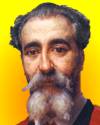 On 28 Sep 1852, Henri Moissan was born, a French chemist who was awarded the 1906 Nobel Prize for Chemistry for the isolation of an element (in the quiz below). On 28 Sep 1852, Henri Moissan was born, a French chemist who was awarded the 1906 Nobel Prize for Chemistry for the isolation of an element (in the quiz below). To read such a historic accomplishment of a scientist in his own the words always has a particular interest no other biographer can offer. You can read Moissan's description of the isolation of this element in a translation of a lecture by Henri Moissan delivered to the Royal Institution (28 May 1897). |
| Book of the Day | |
|
| Quotations for Today | |
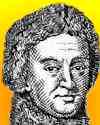 | Might one not say that in the chance combination of nature's production, since only those endowed with certain relations of suitability could survive, it is no cause for wonder that this suitability is found in all species that exist today? Chance, one might say, produced an innumerable multitude of individuals; a small number turned out to be constructed in such fashion that the parts of the animal could satisfy its needs; in another, infinitely greater number, there was neither suitability nor order: all of the later have perished; animals without a mouth could not live, others lacking organs for reproduction could not perpetuate themselves: the only ones to have remained are those in which were found order and suitability; and these species, which we see today, are only the smallest part of what blind fate produced. |
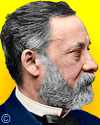 | There is no such thing as a special category of science called applied science; there is science and its applications, which are related to one another as the fruit is related to the tree that has borne it. |
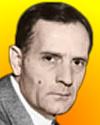 | Equipped with his five senses, man explores the universe around him and calls the adventure science. |
| Quiz | |
| Before you look at today's web page, see if you can answer some of these questions about the events that happened on this day. Some of the names are very familiar. Others will likely stump you. Tickle your curiosity with these questions, then check your answers on today's web page. | |
| Births | |
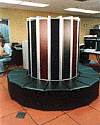 | An American electronics engineer, born 28 Sep 1925, pioneered the use of transistors in computers and later developed massive supercomputers to run business and government information networks. He was the preeminent designer of the large, high-speed computers known as supercomputers. Can you name this man? Can you name this man? |
 | Henri Moissan, born 28 Sep 1852, was a French chemist who received the 1906 Nobel Prize for Chemistry for the isolation of a certain highly reactive element, and the development of the Moissan electric furnace. What was the element he isolated and studied? What was the element he isolated and studied? |
| Deaths | |
 | An American astronomer (1889-1953) is considered the founder of extragalactic astronomy. His name is now remembered by the telescope named for him, and the Hubble Constant associated with his landmark discovery that is arguably the most important contribution to cosmology ever made.  What was Hubble's great discovery? What was Hubble's great discovery? |
 | Louis Pasteur (1822-1895) is known as the founder of microbiology. His name remains associated with the process of pasteurisation. What is the process of pasteurisation? What is the process of pasteurisation? |
| Events | |
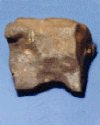 | On 28 Sep 1969, a meteorite fell over Murchison, Australia of which only 100-kg has been recovered. An abundance of a certain type of chemical compounds found within this meteorite has led to intense study by researchers as to its origins. More than 92 such compounds have been identified within the Murchison meteorite to date. Of these, just nineteen are presently found on Earth, but the greater number remaining are new compounds not known to occur naturally on Earth. What type of chemical compounds of particular interest are these? What type of chemical compounds of particular interest are these? |
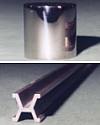 | In 1889, the third legal definition of the metre was adopted at the Paris General Conference. On an international prototype metre bar, the metre was defined as the distance measured at 0���C between two inscribed lines. A hard, corrosion-resistant alloy was used to make the bar. Of what two metals was the alloy made? Of what two metals was the alloy made? |
| Answers |
| When you have your answers ready to all the questions above, you'll find all the information to check them, and more, on the September 28 web page of Today in Science History. Or, try this link first for just the brief answers. Fast answers for the previous newsletter for September 27: the decade including the year 1978 • synthesis of an organic compound from inorganic materials • the study of the origin, composition, structure, and alteration of rocks (and has nothing to do with petroleum except when the word stem petr- meaning rock is paired with oleum meaning oil) • the decade including the year 1922 • S.S. Arctic. |
| Feedback |
 If you enjoy this newsletter, the website, or wish to offer encouragement or ideas, please send feedback by using your mail reader Reply button. If you enjoy this newsletter, the website, or wish to offer encouragement or ideas, please send feedback by using your mail reader Reply button. Your click on a StumbleUpon, Google+ or Facebook social button on the site webpages is also a welcome sign of appreciation. Thank you for using them. |
| Copyright |
| To find citations for quotations go to the corresponding webpage by clicking on the “quotes” balloon icon. Sources for the thumbnails appear on today's webpage with the corresponding item. � This newsletter is copyright 2013 by todayinsci.com. Please respect the Webmaster's wishes and do not put copies online of the Newsletter � or any Today in Science History webpage. (If you already have done so, please remove them. Thank you.) Offline use in education is encouraged such as a printout on a bulletin board, or projected for classroom viewing. Online, descriptive links to our pages are welcomed, as these will provide a reader with the most recent revisions, additions and/or corrections of a webpage. For any other copyright questions, please contact the Webmaster by using your mail reader Reply button. |
--
If you do not want to receive any more newsletters, Unsubscribe
To update your preferences and to unsubscribe visit this link
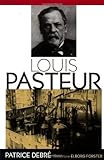

Δεν υπάρχουν σχόλια:
Δημοσίευση σχολίου